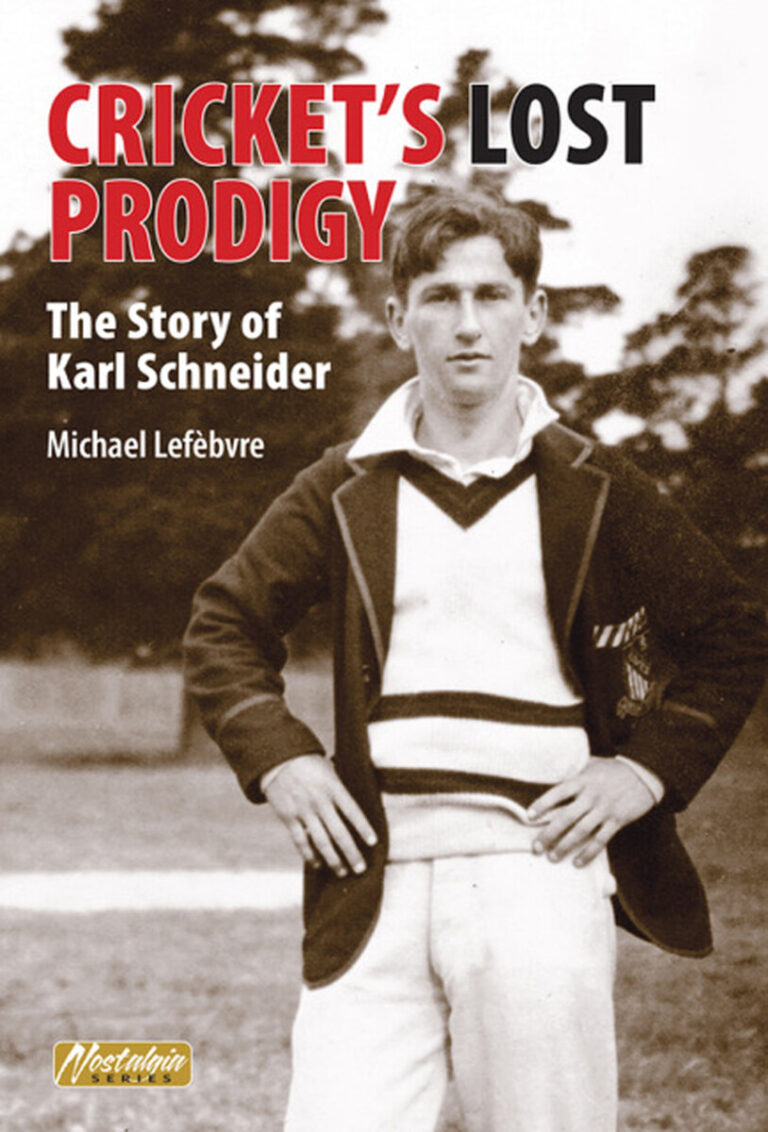Subtotal:
$900.00

It was the summer of speed which smashed cricket’s modus operandi forever. So relentless were the volleys of ‘throat’ balls from Jeff Thomson and Dennis Lillee in 1974-75, that the departing English blessed themselves that no one had been killed.
‘One tour too many,’ 35-year-old Brian Luckhurst told a teammate.
On a Brisbane greentop, he’d only just evaded a snorting bouncer from Thomson, making his Ashes debut. ‘He went as pale as ash,’ said his opening partner Dennis Amiss.
Keith Miller, the face of Australian cricket, said the sheer brutality of the pair frightened him. ‘And I’m 200 yards away.’
As Luckhurst and Amiss walked out to open England’s innings at the ‘Gabba, Amiss looked to the Stanley St. end and was astonished to see the length of Lillee’s run-up.
The English had originally discounted Lillee as a threat, given he was returning after stress fractures had sidelined him for 12 months and more.
They’d also downplayed the likely menace of Thomson, reckoning he was too erratic. Vice-captain John Edrich went as far as to say that ‘there is no need to worry about him. This chap can’t bowl.’
Australia’s captain Ian Chappell had initially intended for Thomson to follow Lillee at first change but on a whim, changed his mind. ‘Tang,’ he said to Max Walker. ‘Hang on. Thommo have a few this end.’
Not since the days of Jack Gregory and Ted McDonald in the ‘20s had the Australians had such a speed blitzkrieg from both ends.
England was annihilated and Lillee and Thomson forever feted, taking almost 60 wickets between them.
Fifty years since that groundbreaking summer, Englishman David Tossell has exposed the fragility of Mike Denness and his touring English in ‘Blood On The Tracks’, a full-length 388-page book of the tour.
He has weaved interviews, new and old, throughout a free-flowing narrative tracking Australia’s runaway 4-1 victory.
Thomson’s sheer speed and bounce was as extraordinary as Lillee’s remodelled action. ‘Gone was the (Lillee) sprint towards the wicket with arms and legs going in all directions,’ Tossell said. ‘His approach was controlled, balanced and more sustainable. The result, though, was still lethal.’
In mid-match, after an audacious Tony Greig century in which he signalled some of his own 4s, Chappell asked his pace pair to attack the stumps more. Eighty-one of Greg’s thrilling 110 had come from shots between slip and cover. It was a brilliant counter attack which almost squared the match fortunes before Thomson, heeding his captain’s advice, pitched up and bowled Greig off his toes. England was never again a threat, losing by 166, Thommo taking a ‘six-for’.
Visiting English writer John Woodcock said of Thomson: ‘Within a fortnight he became a face, then a threat and finally a destroyer.’
With Amiss immediately sidelined with a broken hand, Denness called for a reinforcement in 41-year-old Colin Cowdrey.
‘Cowdrey was at home in the Surrey village of Limpsfield, preparing for a typical winter’s morning when the phone rang and a familiar face greeted him,’ said Tossell.
It was Denness. ‘I don’t know if you have been watching what’s been happening out here,’ Denness began. ‘I have a request. Would you like to come out? We have a few injuries and we need someone to bat up the order. How would you feel about it?’
‘I would love to,’ was Cowdrey’s nonchalant reply, as if he was accepting an invitation to a tea party.
Just days later, walking out to bat with so much protective gear on his arms and upper body, that he resembled Humpty Dumpty – another nice one-liner from the author – he made a point of seeking out Thomson: ‘I’m Colin Cowdrey,’ he said, offering his hand.
In the context, Cowdrey’s 41 was remarkable, but was to remain his highest score in a summer in which he averaged just 18. Chappell had been scathing of his initial selection, saying had it been Australia, someone younger would have been enlisted.
When Cowdrey has hit in the midriff trying to pull Thomson, Chappell approached and asked: ‘Are you alright Kipper?’
‘Ian,’ Cowdrey answered. “I am a bloody old fool trying to hook this man.’
Doug Walters urged Chappell to withdraw Thomson ‘before he kills him.’
Tossell was just 13 and ‘half a world away’ at the time of the 1974-75 summer. But his series of fresh interviews and access to many unpublished conversations via a Sky Sports contact has added a freshness and vitality for which he is to be commended.
May some other famous old series be similarly re-lived. – KEN PIESSE
Never miss a sale or new release. Subscribe to cricketbooks.com.au

Cricketbooks.com.au is Australia’s number 1 website and online store for cricket publications and memorabilia. Coordinated by Ken Piesse – Author, Commentator, Public Speaker, and Publisher – cricket books has Australia’s largest range of both new releases and classic collectibles, cigarette cards, rare photographs, and much more.
PO Box 868
Mount Eliza, Victoria 3930, Australia
Mob: 0419 549 458
Tel: (03) 9787-8023
Email: kenpiesse@ozemail.com.au